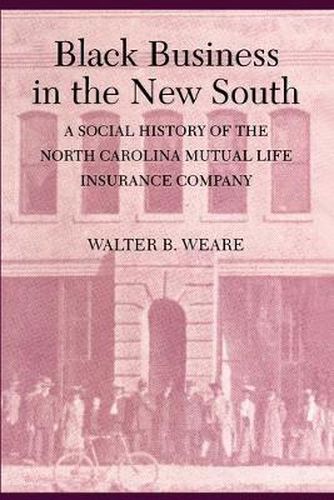Readings Newsletter
Become a Readings Member to make your shopping experience even easier.
Sign in or sign up for free!
You’re not far away from qualifying for FREE standard shipping within Australia
You’ve qualified for FREE standard shipping within Australia
The cart is loading…






At the turn of the century, the North Carolina Mutual Life Insurance Company became the world’s largest Negro business. Located in Durham, North Carolina, which was known as the Black Wall Street of America, this business came to symbolize the ideas of racial progress, self-help, and solidarity in America. Walter B. Weare’s social and intellectual history, originally published in 1973 (University of Illinois Press) and updated here to include a new introduction, still stands as the definitive history of black business in the New South. Drawing on a wide range of sources-including personal papers of the company’s leaders and oral history interviews-Weare traces the company’s story from its ideological roots in the eighteenth century to its economic success in the twentieth century.
$9.00 standard shipping within Australia
FREE standard shipping within Australia for orders over $100.00
Express & International shipping calculated at checkout
Stock availability can be subject to change without notice. We recommend calling the shop or contacting our online team to check availability of low stock items. Please see our Shopping Online page for more details.
At the turn of the century, the North Carolina Mutual Life Insurance Company became the world’s largest Negro business. Located in Durham, North Carolina, which was known as the Black Wall Street of America, this business came to symbolize the ideas of racial progress, self-help, and solidarity in America. Walter B. Weare’s social and intellectual history, originally published in 1973 (University of Illinois Press) and updated here to include a new introduction, still stands as the definitive history of black business in the New South. Drawing on a wide range of sources-including personal papers of the company’s leaders and oral history interviews-Weare traces the company’s story from its ideological roots in the eighteenth century to its economic success in the twentieth century.